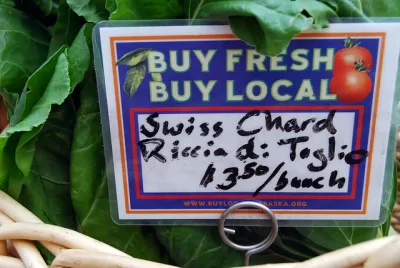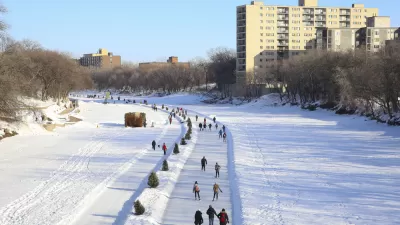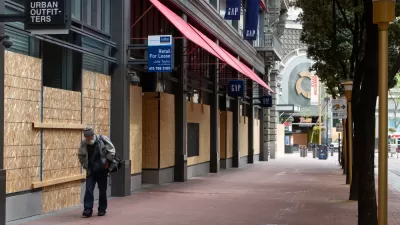The food system, from supply to distribution and consumption, is undergoing a rapid transformation. Community supported agriculture could potentially benefit.

"From California to Maine, the movement known as community supported agriculture (CSA) is booming," according to an article by Eric Westervelt.
A soundbite puts an exclamation on this point:
"In all the time that we've worked with CSAs, which is several decades, we've never seen a surge as quickly as we have of the last few weeks," said Evan Wiig with the Community Alliance with Family Farmers, which supports and lobbies on behalf of CSAs across California.
Westervelt's coverage of the growth of CSAs contracts other narratives about risks emerging in the food system, both in terms of supply and distribution, that have emerged during the pandemic. The headline for an article by Kevin Rector, for instance, reads as follows: "Rotting food. Hungry masses. Chaotic supply chains. Coronavirus upends the U.S. food system."
Another article, by Adam Clark Estes for Recode, explains why the American meat shortage is much more serious than Wendy's asking, "where's the beef?" (the jokes on Twitter wrote themselves when news of a meat shortage at the fast food chain made the rounds earlier this month). The effects of the coronavirus on the U.S. food system could have lasting impacts for years, writes Estes:
This context should put your missing hamburger into perspective. The plight of these workers is just the starting point in a chain of crises the coronavirus is creating in America’s food supply. The shuttered meatpacking plants have created a bottleneck in the system through which most meat in the United States must flow in order to get ground beef to Wendy’s, chicken breasts to your local grocery stores, bacon to the nearby diner now trying to run a takeout business, and so on.
With such dire warnings and near-panic seeping from most stories about the U.S. food system, a "heydey for CSAs," as it's called in Westervelt's article, could be considered a silver lining.
FULL STORY: As Food Supply Chain Breaks Down, Farm-To-Door CSAs Take Off

Alabama: Trump Terminates Settlements for Black Communities Harmed By Raw Sewage
Trump deemed the landmark civil rights agreement “illegal DEI and environmental justice policy.”

Planetizen Federal Action Tracker
A weekly monitor of how Trump’s orders and actions are impacting planners and planning in America.

The 120 Year Old Tiny Home Villages That Sheltered San Francisco’s Earthquake Refugees
More than a century ago, San Francisco mobilized to house thousands of residents displaced by the 1906 earthquake. Could their strategy offer a model for the present?

In Both Crashes and Crime, Public Transportation is Far Safer than Driving
Contrary to popular assumptions, public transportation has far lower crash and crime rates than automobile travel. For safer communities, improve and encourage transit travel.

Report: Zoning Reforms Should Complement Nashville’s Ambitious Transit Plan
Without reform, restrictive zoning codes will limit the impact of the city’s planned transit expansion and could exclude some of the residents who depend on transit the most.

Judge Orders Release of Frozen IRA, IIJA Funding
The decision is a victory for environmental groups who charged that freezing funds for critical infrastructure and disaster response programs caused “real and irreparable harm” to communities.
Urban Design for Planners 1: Software Tools
This six-course series explores essential urban design concepts using open source software and equips planners with the tools they need to participate fully in the urban design process.
Planning for Universal Design
Learn the tools for implementing Universal Design in planning regulations.
Clanton & Associates, Inc.
Jessamine County Fiscal Court
Institute for Housing and Urban Development Studies (IHS)
City of Grandview
Harvard GSD Executive Education
Toledo-Lucas County Plan Commissions
Salt Lake City
NYU Wagner Graduate School of Public Service





























